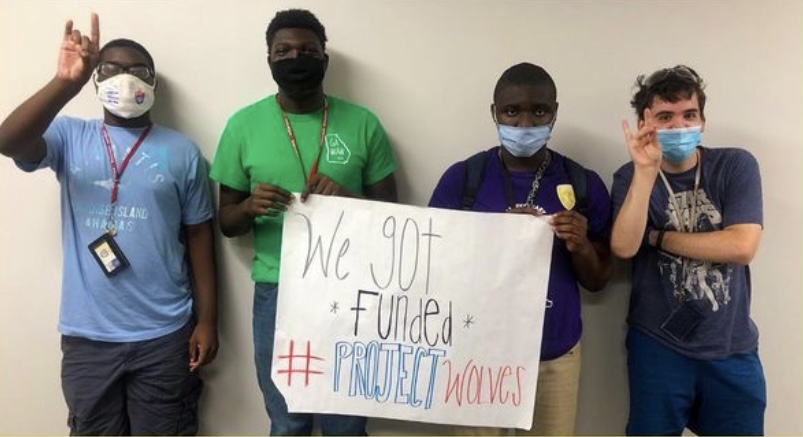In 2019, funding was eliminated for Project WOLVES, an Inclusive Postsecondary Education Program (ISPE) available to students who have graduated from high school with developmental and intellectual disabilities. The program gave students opportunities in readiness skills, employability skills, social and academic skills throughout the two-year program course and offered a certificate upon completion. Students would attend classes, live and work on campus to help prepare them for their post college careers.
“While the ability to be included on a college campus is imperative, the primary outcome of inclusive postsecondary programs is employment,” said Dr. Rachel Tullis, Assistant Professor of Special Education and former Program Director of Project WOLVES.
The program ended in 2021 after four students, who began in 2019, graduated from the program in May. Graduation was held and the students were honored for their accomplishments over the past two years of the program. The program focuses on having students as part of one student body, rather than separately, including working and living on campus.
Currently, there are no other programs at UWG offered similar to Project WOLVES. Despite the program earning a grant in 2020 to help with funding, the University itself no longer contributes for the program’s continuation. There are nine other University System of Georgia (USG) IPSE programs for students with intellectual and developmental disabilities. These comprehensive transition programs function similarly to Project WOLVES, with students completing two years of course work to earn a non-degree certificate.
“The impact of these types of programs is multifaceted. There is the impact on the Project WOLVES students themselves, an impact on their peer mentors, who are regularly enrolled UWG students, and the impact on the University,” said Dr. Tullis.
These programs have a high success rate, almost 54% of ISPE graduates currently are employed after program completion.
“The employment rate for people with intellectual disabilities is dismally low for a variety of unjust reasons,” said Dr. Tullis. “This low unemployment rate robs capable individuals of access to healthcare, housing, independence, and social opportunities- access to all of which lead to a higher standard of living and improved mental health. Members of our community with disabilities deserve access to these essential outcomes just as much as those without.”
Project WOLVES, like other ISPE programs, is primarily paid for by state and federal funding, some which will fund up to $500,000. ISPE programs are essential to allow students with disabilities that want to further their education the opportunity since many inclusive education opportunities, along with funding, end after high school graduation.
“The impact on the university spans from creating accessible courses to improving inclusive systems and structures throughout campus. For example, instructors for the courses that the Project Wolves students were enrolled in needed to ensure that their classes were designed and executed in such a way that they were accessible for all students, regardless of disability,” said Dr. Tullis.
You may also like
-
UWG’s Ingram Library Hosts Pop-Up Study Spot to Help Students Prepare for Finals Week
-
UWG Offers Mental Health Support And Academic Services To Maintain Student Success During Finals Week
-
UWG Alumnus Shares His Experience Exploring the Underground Flood Channels of Las Vegas
-
Georgia Students Simulate the Struggles of Dementia
-
UWG PR Students Score a Georgia Power Tour at Atlanta Corporate Office
